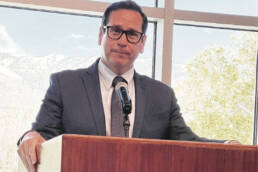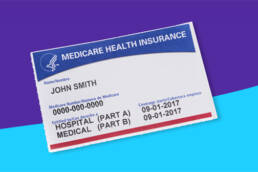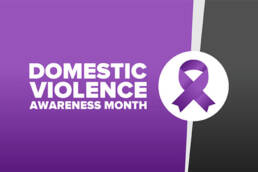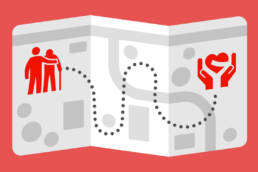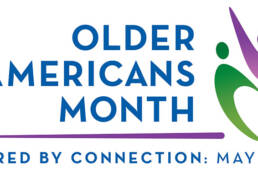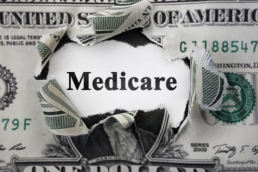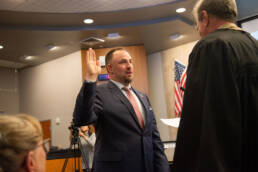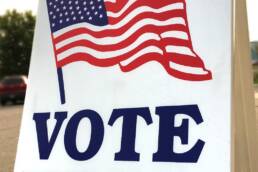Social Security’s Unique Way of Lowering Medicare Part B/D Premiums
Dear Toni,
I turned 65 in November and enrolled in Medicare. I received a letter from Social Security stating that I must pay $527.50 for Part B and $70 for Part D totaling $597.50 monthly. The IRS states that my income was $375,000 in 2022.
The high-income level is because my husband was working in 2022. Charlie passed away in February and my income now is only my Social Security check of $2400 a month to pay bills.
How do I inform Social Security that my income has changed because I am no longer receiving my husband’s income? I have heard from friends that you are aware of a unique way I can bring my Medicare premiums to a lower, affordable amount? Gwen from Austin, TX
Hi Gwen:
Of course you do not want to wait the usual 2 years for the IRS to inform Medicare that your income has decreased due a “Life Changing Event” (such as death of a spouse, recently married/divorced, retired, been laid off/working part-time) You want to let Medicare know NOW that you have had a “Life Changing Event,” because you or your spouse are no longer earning that amount of income?
Many Americans still believe that everyone pays the same amount for their Medicare Parts B and D premium. Those days are long gone!
If your income as an individual was over $97,000 for 2023 and is over $103,000 in 2024 or if your married/joint income was over $194,000 for 2023 or is over $206,000 for 2024, then your Medicare Parts B and D premiums will be more. Social Security explains in the letter that is mailed to you, how they arrived at the Part B and D premiums based on your “Modified Adjusted Gross Income” (MAGI) from your last filed tax return.
Gwen, your MAGI was over $375,000 and the table used in the letter you received from Social Security shows what the Part B and Part D “premium adjustment” will be, whether you are filing single or married.
But special situations, also known as “Life Changing Events,” can lower your “income related monthly adjusted amount” (IRMAA).
Below are a few “Life Changing Events” that can make your MAGI go down:
• You have gotten married or divorced, or your spouse has died.
• You or your spouse have stopped workingor have reduced your hours.
• You have lost property that you were making money from due to a disaster or other event beyond your control; or
• Your or your spouse’s benefits from an insured pension plan stopped or went down.
Use form SSA-44, “Medicare Income-Related Monthly Adjusted Amount – Life-Changing Event” to advise Social Security of your change in income. Visit SSA.gov to download the SSA-44 form or see chapter 8 of Toni’s Medicare Survival Guide Advanced edition for Medicare forms including SSA-44 and others.
Once Social Security is satisfied with the evidence, it will update its records and correct Part B and Part D premiums to reflect your current income is.
Gwen, since you are now single and no longer receiving Charlie’s income you will have significant changes to your income amount. The IRS and Social Security office reviews your filed tax returns each year and will adjust your Part B and D premiums to correspond with your new income level the following year. You will want to keep filing Form SSA-44 until your last filed return reflects your current income.
Need help understanding Medicare, Toni’s new Confused about Medicare video series is available at www.tonisays.com. Medicare Moments podcasts are at www.seniorresource.com/medicaremoments. Email [email protected] or call 832/519-8664 for answers to your Medicare questions.
Son Loses Mom’s House Because Poor Medicare/Medicaid Choices!
Toni,
I have a client, Joshua, who just received a bill for his mother’s long-term care paid by Medicaid in the state of Texas, with care provided at her house instead of a nursing home during the last few years of his 80-year-old mother’s life. No one informed him that the state was running a tab of all healthcare expenses that Medicaid paid and wanted to be reimbursed after his mother died.
Medicaid says the $65,000 medical bill that Medicaid must be paid in full. Joshua recently received a document from MERP (Medicaid Estate Recovery Program) saying that Medicaid wants the money used for his mother’s care back and is filing a lien against the house that his mother owned, which Josh now lives in.
Americans needs to be aware of their state-specific Medicaid rules when receiving “extra” health care, especially if you or your family member owns a home. Thanks, Chuck – an elder care attorney and Toni Says reader.
Hello Chuck:
Everyone should know about the MERP (Medicaid Estate Recovery Program) for their specific state by visiting www.medicaid.gov/medicaid/eligibility/estate-recovery/index.html. The website says, “State Medicaid programs are required to recover certain Medicaid benefits on behalf of a Medicaid enrollee. For individuals age 55 or older, states are required to seek recovery of payments from the individual’s estate for nursing facility services, home and community-based services, and related hospital and prescription drug services.”
During a Toni Says consultation, confused adult children are shocked to discover their state has taken a lien on their parents’ house because of long-term care health care costs that the state paid.
Chuck, I am sure your client was astonished to find out that the state of Texas wants the $65,000 that Medicaid spent for his mother’s care returned, even though the care was at home and not in a nursing home.
All claims against an estate, including MERP claims, must be paid before the property can be distributed as specified in a will. The state does not, however, require an heir to sell the deceased recipient’s homestead (house) if the claim can be paid by other funds. But if not, then the heir may have to sell the house or the state will file a lien against the house, such as your client is experiencing.
The letter sent to the enrollee’s estate states that the amount recovered by Medicaid will not exceed the value of the estate’s assets, if any. If there is no money or assets in the estate, then there is nothing to recover.
Readers, now you know how Medicaid’s Long Term Care services operate.
My advice to readers whose loved one is receiving Medicaid benefits would be to explore your options and work out a schedule with family members to take care of your loved one. This way you can protect all that they have worked so hard to accumulate.
Toni’s advice:
• Seek the advice of an Elder Care Attorney that can assist with proper Medicaid planning for the specific state that your parents live in. Keep in mind: No one wants their adult kids or grandchildren to be their caregiver and take care of their activities of daily living such as bathing, dressing, bathroom problems, etc.
• Do not rely on advice from well-meaning friends, who are not an expert in the Medicare/Medicaid arena.
Readers, it is important to understand that traditional long-term care insurance plans offer more flexibility and options than Medicaid. Medicaid long-term care is available for those living on a limited income.
Toni King, author of the Medicare Survival Guide Advance edition, which is a simple guide that puts Medicare in “people” terms, is on sale at www.tonisays.com. Email questions or schedule a “Confused about Medicare Workshop” for your organization or company by emailing [email protected] or call 832/519-8664.
Why Enrolling in Medicare Part D is Important!
Toni:
I was told to receive a shingles vaccination; I need to be enrolled in a Part D prescription drug plan for the vaccination to have a $0 copay or pay $200. I thought all vaccinations and immunizations are covered at no cost under Medicare Part B.
Can you explain this Medicare rule Thank you, Carl from Lubbock, TX
Carl:
On January 1, 2023, the Inflation Reduction Act eliminated all out-of- pocket costs for vaccines which the CDC’s Advisory Committee on Immunization Practices recommended for adults. This important Medicare change went into effect whether you have drug coverage from a stand-alone Medicare Part D Prescription Drug plan or from a Medicare Advantage plan with Part D coverage. The shingles vaccine, also known as Shingrix is included at no cost.
Carl, I hope you are enrolled in a Medicare Part D plan, or you will have to pay more than $200 per dose for Shingrix, which the Food and Drug Administration approved in 2017. Not being enrolled in a Part D or Advantage plan with Part D coverage is why you were told that you might have to pay over $200 per dose for the vaccine.
It is important for those leaving employer group health insurance after 65 or enrolling in Medicare for the first time (when turning 65 or before 65 if eligible) to be sure to enroll in a Medicare Part D stand-alone prescription drug plan, with or without a Medicare Supplement, or a Medicare Advantage plan with Part D. Having the shingles shot covered with a $0 copay is an important reason Americans should enroll in a Medicare Part D plan when eligible.
Those with a Medicare Part D plan can receive their shingles vaccine at the pharmacy or at your doctor’s office. If you have trouble affording the Medicare Part D prescription drug premium, you may qualify for Medicare’s Extra Help program, that assists people with limited income and assets pay premiums and out-of-pocket costs for Part D drug coverage.
Page 50 of the 2024 Medicare & You handbook explains how shots (or vaccines) flu, hepatitis, pneumonia shots and COVID-19 vaccines are covered under Medicare Part B. The handbook states that shots are covered under Medicare and that you may pay nothing for the shot as long as your doctor or other health care providers accepts Medicare assignment. Always verify that your doctor is accepting Medicare assignment.
Below is what page in the Medicare and You handbook that Medicare Part B will cover vaccines to prevent:
• Influenza (the flu) currently the seasonal flu shot, See pg. 42.
• Hepatitis B (if you are at medium or high risk), See pg. 42.
• Pneumococcal Shots (Pneumonia), See pg. 48.
• COVID-19 vaccines and testing, See pg. 37.
Under “Important” on pg. 50, the handbook says that, for shots not covered under Medicare Part B that Part D “generally covers other recommended adult immunizations to prevent illness (like shingles, tetanus, diphtheria, and pertussis and respiratory syncytial virus (RSV) at no cost to you.” The handbook advises you, if your shot is not on the Medicare list, ask for a coverage exception and to talk with your doctor about which immunizations are right for you.
Part B will cover other immunizations, but only if you are exposed to a disease or condition such as a Tetanus shot if injured by a rusty nail or rabies if bitten by a dog or strange animal.
It amazes me how Medicare can make a simple medical issue such as getting a vaccine so complicated. Remember, with Medicare it’s what you don’t know that WILL hurt you! If you have a Medicare question, email [email protected] or call 832-519-8664. Toni’s new Confused about Medicare” video series is available at www.tonisays.com.







